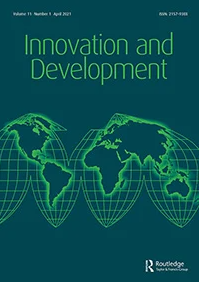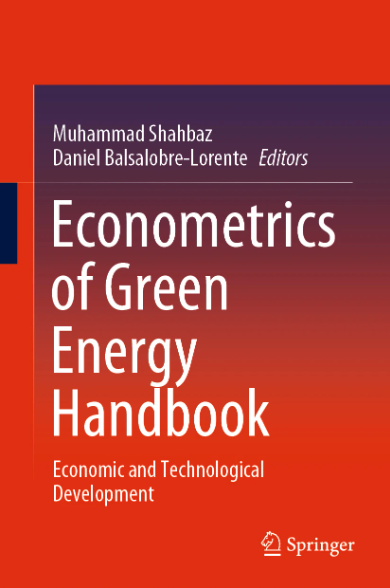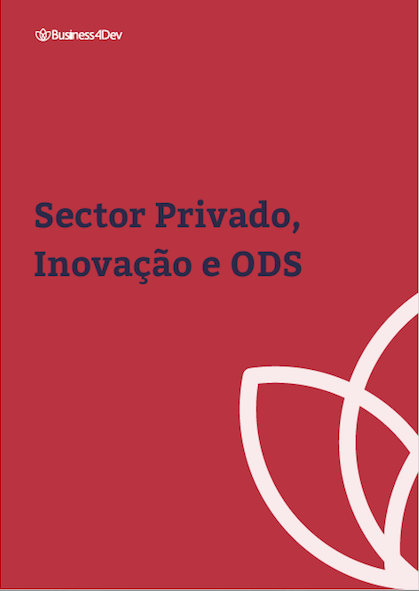Sustainable Development

Innovation in development cooperation: emerging trajectories and implications for inclusive sustainable development in the 21st century
Abstract:
In the past twenty years, innovation has slowly, but steadily, become an important presence in development cooperation discourse and practice. The ambitious UN 2030 Sustainable Development Agenda has accelerated this trend, providing a strong framework for the main argument in favour of an innovation agenda for international development: without new ideas and innovative solutions, solving the current global development challenges will not be possible. Although this innovation-push is in line with a wider predominant view of innovation as an inherently positive force of progress, that alone does not explain when, how, and why innovation becomes a key topic in the field. This article seeks to fill this gap in the literature, providing an initial overview of innovation in development cooperation in the post-2000s. It argues, firstly, that innovation has always been part of international development policy and practice. Secondly, it links the recent strengthening of the innovation discourse to three trends in the systemic transformation of the field: the triumph of metrics-based agendas, the ICTs and digitalization revolutions, and the role of private sector actors. It concludes by critically assessing the implications of this narrative in changing the politics of innovation towards more inclusive sustainable development policies and practices.
Quotation:
Ana Luísa Silva (2021) Innovation in development cooperation: emerging trajectories and implications for inclusive sustainable development in the 21st century, Innovation and Development, 11:1, 151-171, DOI: 10.1080/2157930X.2020.1807100

The Causality between Energy Consumption, Urban Population, Carbon Dioxide Emissions and Economic Growth.
Abstract:
This article assesses the relationship between electricity consumption and urbanisation by comparing the econometric results of distributed autoregressive lag (ARDL) and vector autoregressive lag (VAR) for the period 1960-2015. Granger causality is also applied to the Portuguese economy. In this study, we use some hypotheses that describe the link between electricity consumption, urban population, carbon dioxide emissions, and economic growth. The motivation of this research focuses on the relationship between electricity consumption (energy consumption) and urban population, supported by the theoretical and empirical contributions of energy and urban economics. The empirical results show that electricity consumption exhibits causality with economic growth, urban population, carbon dioxide emissions, and international trade. This research also proves that there is cointegration among all variables in the long run. Authored by Nuno Carlos Leitão e Daniel Balslobre-Lorente, this chapter (nº5) is part of the book “Econometrics of Green Energy Handbook”, which shares essential insights into the dynamic between energy innovations, environmental guidelines, and economic development, demonstrates how globalization has led to the development of greener energy technologies, paints a global picture using case studies on energy innovation in numerous countries and discusses both technological and policy aspects of green energy development.
Quotation:
Leitão, N.C. & Lorente, D. B. (2020): The Causality between Energy Consumption, Urban Population, Carbon Dioxide Emissions and Economic Growth. Springer Handbook Green Energy Series: Econometry of Green Energy- Economy and Technological and Development. Publisher: Springer.

Inovação para os objectivos de desenvolvimento sustentável
Inovação para os objectivos de desenvolvimento sustentável by Luís Pais Bernardo is a guide to perplexity. Innovation for Development is the subject of reports, studies and international conferences. Laboratories, centres and initiatives multiply. Innovation models, innovation at scale and the impacts of innovation are discussed. But the fundamental questions remain. What is Innovation (for Development)? What is it for? How is it done? And is it worth doing? These are the questions that the entire international development community has been asking, without pause, for a decade. This report is a guide that does not aim to discover the origin of the practices and discourses of Innovation for Development. Nor do we intend to draw up a compendium of innovations. Our ambition is somewhat more pragmatic: to provide concrete answers to immediate questions and to help build a stronger debate on development, development cooperation and innovation in development cooperation. Where necessary, we explore important questions that are reflected in innovation practice: for example, Innovation for Development is an answer to the problem of ODA effectiveness and a priority of the 2030 agenda. Why does this matter? Because it has implications for the financing, practice, impact, scale and evaluation of development cooperation.
Abstract:
What is Innovation for Development? What is it for? How is it done? And how does it differ from innovation in other sectors? This report is an answer to those questions. Between 2015 and 2030, the Sustainable Development Goals are the great global challenge. Innovation for Development emerged in response to a complex debate on aid effectiveness. Today, the questions are different: how can we innovate to achieve the SDGs? In this report, we focus on clarifying basic terms: innovation, scale and impact. We discussed the need to structure Innovation for Development around five components: learning, creating, organizing, leading and collaborating.
Quotation:
Bernardo, Luís Pais (2020). Inovação para os objectivos de desenvolvimento sustentável. Lisboa: CEsA – Centro de Estudos sobre África e Desenvolvimento/ISEG. URL: https://www.repository.utl.pt/handle/10400.5/20052
Access the article here.

Sector privado, inovação e ODS
In Sector privado, inovação e ODS, Luís Pais Bernardo explores the reasons why companies can and should adopt business models aligned with the SDGs, in partnership with international cooperation actors. Partnerships are key to this transformation; today, business economic activity tends to move along global value chains in which the intervention of international cooperation for development, around the 2030 Agenda, will have an increased impact. In this context, the inclusive and responsible management of the procurement of services and products on a global scale by companies becomes increasingly important. Partnerships, global value chains and procurement of goods and services are the three areas explored in this report.
Abstract:
The central role of the private sector in international development cooperation is one of the innovations of the 2030 Agenda. In 2014, UNCTAD estimated the annual funding gap for the Sustainable Development Goals (SDGs) at US$2.5 billion. Following the Busan summit and the conclusions of the Millennium Development Goals (MDGs), the capabilities, resources and skills of the private sector are no longer viewed with suspicion, but are seen as central to achieving the 17 SDGs. Innovation, as a pillar of the private sector in the 20th century XXI, is the new paradigm. In this report, we explore the reasons why companies can and should adopt business models aligned with the SDGs, in partnership with international cooperation actors. Partnerships are key to this transformation; today, business economic activity tends to move along global value chains in which the intervention of international cooperation for development, around the 2030 Agenda, will have an increased impact. In this context, the inclusive and responsible management of the acquisition of services and products on a global scale by companies, assumes an increasing importance. Partnerships, global value chains and procurement of goods and services are the three areas explored in this report.
Quotation:
Bernardo, Luís Pais (2020). Sector privado, inovação e ODS. Lisboa: CEsA – Centro de Estudos sobre África e Desenvolvimento/ISEG. URL: https://www.repository.utl.pt/handle/10400.5/20053
Access the article here.





